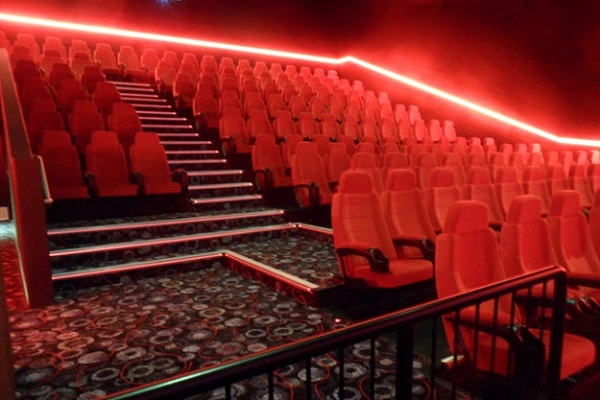.jpg)
Cineworld blog editor Sean Wilson explains why the solo cinema experience exerts such a powerful influence on him.
I recently attended a Cineworld screening of Coralie Fargeat's outrageously entertaining new body horror satire The Substance. It stars a resurgent Demi Moore as an ageing actor who discerns a way to split her body into two (the other played by Margaret Qualley), to the extent that the former can live vicariously through a younger self and thus navigate the cutthroat, sexist politics of the movie industry.
The movie is a blast: rippingly gruesome with echoes of David Cronenberg and John Carpenter yet underpinned with a sober moral about the double standards visited on women in the entertainment world. Moore is incendiary in what is likely her best work to date, and Qualley matches her scene for scene in terms of intensity.
What made the experience more interesting was I visited the cinema on my own. This is something I do a lot, whether it's in my capacity as a digital editor or for pleasure if I've missed a movie at a preview screening. That's not to say I was alone in the screening – to my surprise, the movie was attended by a good 20 other people, not something I expected from an arthouse horror film that's so transgressive and provocative.
The good news was the other people in the audience were audibly having as good a time as I was: like me, they seemed tuned into the movie's gonzo level of grisly satire, laughing and flinching with gleeful abandon.
Even so, these people were strangers to me, so the experience of watching the movie was internalised within my head. I didn't attend with friends or family members (perish the thought I find anyone with as strong a stomach), so the screening stands out in my memory, like many other screenings I've attended on my own. Admittedly, this was a recent cinema visit so at the time of writing, I'm still close in proximity to my viewing of the film.
However, that's not the whole story. There is something quite magical about consuming an entire movie on one's lonesome. Even if there happen to be other people in attendance, the aesthetics of cinema presentations are such that they connect to both a singular viewpoint and a communal gathering all at once.
Think about it: the house lights go down, akin to one's subjective experience of sleep or reflection upon a deep memory. Darkness enshrouds anyone else who may be in the room with me, and although their noises might give them away, the darkness seems to communicate that the experience set to unfold is made for me and me alone.
Then there is the implicit construction of the film itself, which connects with my singular sense of self on an almost atavistic level. The sculpture of a cinematic narrative within a distinct time frame communicates something that's almost primordial: I am essentially watching an allegorical reflection of birth, life and death compressed into a brief span, which speaks to my own organic and psychological fallibility as a human being with a finite amount of time to achieve what I want to achieve.
This isn't something that's spelled out with expositional text. It's something that, as a lifelong film lover, I feel deep within my soul. It's so nebulous that it's hard to translate into words, but I perceive the effect it has on me. The nature of camera movement, music, set decoration, performance and script, to name but a few elements, have all been minutely calibrated to be seen through human eyes and ears, hence why cinema has skyrocketed as the dominant mass-market art form of the 20th and 21st centuries. But no one possesses the eyes and ears that I do, hence one will see and hear what I do,
Once again, if I'm in a screening with other people, I won't be the only one experiencing this, but my articulation of the cinema experience is unique to me and me alone. Would I have these thoughts if I attended the film with somebody else? Quite likely, but the experience would probably be transfigured into something else. It would likely become more of an enjoyable surface-level outburst based on a film's more outrageous elements, a desire to share in the experience of something so shocking with somebody on my level.
There is, of course, value and pleasure in that. Communal experiences, be it in a cinema, concert arena, or wherever, are largely built on explicit, vocal reactions designed to bond us together and, to invoke Inside Out 2, shape core memories. Solo cinema visits are different: they are quieter and by their nature more introverted but they work their magic in an equally potent fashion, allowing one to better appreciate the inherent manipulations of both cinematic projection and the films themselves.
Visiting the cinema by myself allows me to indulge these deeper thoughts and reflections. Well, if the film accommodates such a reading then it does. Many other times I have sat through superficial films that don't make me think at all, be it action movies that fail to get the pulse racing or comedy films that barely raise a giggle.
When it comes to a film like The Substance, however, the table is all laid out. Attending this kind of film solo is a feast of singular emotions: I winced, laughed out loud and felt my jaw drop on several occasions. Yet because I attended on my own, it went deeper than that. The movie dared to reach out to me, dared to invite me to laugh at appalling sights and deviant wonders, and dared me to reconcile with the uglier aspects of the cinema industry about which I'm so passionate.
In short, the movie spoke to me alone, and I wasn't compelled to split the difference with somebody else either while the film was on or during the equivalent of the post-match analysis after the lights went up and the credits rolled. I sat there with a big grin on my face for a good couple of minutes while everyone else filed out, free of the luxury of absorbing what I'd seen.
The language of cinema is universal, but the interpretation of said language is wholly subjective and personal. That's why the solo cinema experience is so magical.
Want to read more about the power of the big screen? We asked several leading filmmakers and industry experts about their interpretation of the cinematic medium. Click the link below to find out more.
FILM INDUSTRY EXPERTS ON THE POWER OF THE BIG SCREEN EXPERIENCE
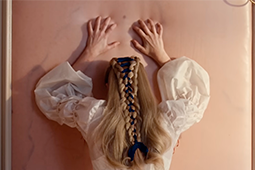
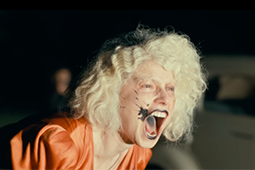


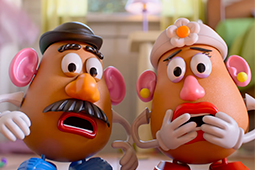

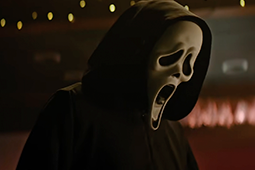
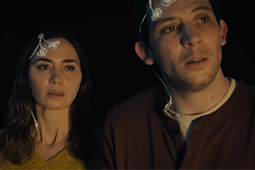





.jpg)
.png)






